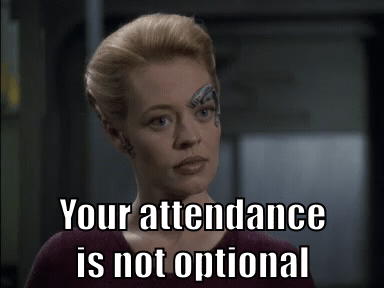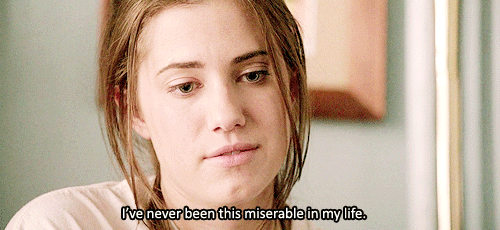Once upon a time, in a land far, far away, there lived a magical creature. The creature was known far and wide for both its powerful mind and its cold, unfeeling heart. Though human-like in appearance, its abilities surpassed those of the average human, and thus, it did not need sleep and sustenance the same way that humans did. Why would it, when it was already fueled by its insatiable quest for knowledge? The villagers who lived around the creature’s fortress often came to it to seek counsel. It didn’t matter what area of knowledge the creature specialized in; it was smart, so it was able to adapt and immediately come up with a solution to whatever problem it was given. The creature was infallible. Invincible.
It went by many names, but it was most commonly referred to as the MIT student.
The story might seem like it was pulled from legends, but it paints an image of MIT students that most of society, even some MIT students themselves, wholeheartedly believes. I’ve heard the anecdotes from my friends — no matter what major they are, they’ll be called on if the printer is jammed or the computer crashes. People are baffled when they seem to be able to carry themselves in social situations. (“Wow, you’re less weird than I expected for an MIT student!”) They are treated as if they know everything and held to a higher standard when they fail. (“You go to MIT, shouldn’t you know this?” and “Hey MIT, what’s 129139 times 23901239 and why can’t you do it in your head?”) Those are the more positive, or at least the less harmful, stereotypes. On the flip side of the coin, I often get asked by worried parents on tours: What’s it like here? After I answer, I get asked again, in a lower voice: No, what’s it really like? How many hours do I sleep? Is the stress a real thing? What’s the suicide rate? And the unasked question: How am I still so happy?
The myth of the invincible MIT student, both superhuman and subhuman, has been perpetuated for far too long. Today, I am here to dispel it.
MIT students aren’t invincible. We are incredibly smart and capable. We are natural problem solvers who don't like to give up until we find a solution. We are good at finding alternative methods to solve things. We are very good at pretending we know what we’re doing, even when we don’t. But we aren’t invincible. Believing that we are invincible is detrimental to both physical and psychological health since that means that we work ourselves too hard, and when we (inevitably) do fail, that failure is harder to accept.
Let’s first address a major part of the myth: MIT students are superhuman. They don’t fail, they don’t falter, and oh: they don’t need sleep. As if getting into MIT magically transforms us. If we were given potions during orientation that prevented us from ever getting tired or failing, I missed that memo.
I want to dispel that myth because it is something that some students buy into.
I’ve heard conversations in which students compete to compare how little sleep they get or brag about their wonky sleep schedules. I really, really dislike that mentality. Yes, the reduced amount of sleep you get may be indicative of how much effort you’ve put into a final project, and when everything is done, you do get to be proud of pulling it off in spite of that. But that should be a once-in-a-while thing, not a sustainable achievement. I know that the final weeks before the 2.00b presentations, for example, my team and I were frantically trying to get our prototype to work. Sleep was put on the sacrificial altar. However, I still tried my best to get as much sleep as I could, because there is a point of diminishing returns, and I knew that I wouldn’t be useful to my team completely sleep-deprived. And I also knew that after playsentations were over I would definitely be crashing.
Lack of sleep should not be a competition. No one wins.
From my experience, it is possible to get eight hours of sleep a night. And it is possible to get good grades. And it is possible to have lots of friends and make lasting college memories. And most important, it is possible to have some mix of all three. You just need to have time management and know what you want to prioritize. Yes, there’s that saying: grades, social life, sleep: pick two, or at MIT, pick one. But I don’t think it’s at clear cut as that. Sometimes, I’ll decline an offer to hang out with friends if I have an important exam I know I need to do well on. Sometimes, I’ll push back working on my pset if my friends are headed for some adventure that sounds too cool to miss. And sometimes, I’ll put everything on hold and go to sleep early if I’m feeling very tired or if I hadn’t gotten enough sleep lately. It’s not a hard-set ‘pick one, ignore the other two’ game plan; it’s a juggling act of decision making. Basically, you have to pick what you want to prioritize at that exact moment, and remember to allot some time for the rest later on. Balance. I think it’s important to take care of both my physical and my psychological health, and that means I don’t just prioritize one thing all the time.
Sleep is a priority, too. Some students forget that.
On the flip side of the coin, there’s the subhuman myth: MIT students are robots that can’t express their emotions and don’t know how to conduct themselves in society.
The population of MIT is very diverse, so we run the gamut: yes, we do have people who are socially and emotionally stunted, but we also have people who can charm almost everyone in the room. Most of us are somewhere in the middle.
We are not just the stereotype of the bookish nerd. We are real live nerds, and that is so much better. We aren’t just mindless number crunchers. We are passionate about the things that we do. Stop students in the Infinite Corridor and ask them what they love, and you are guaranteed to see their eyes light up as they go on about their research or their hobbies or their interests. The great thing about nerds is that they are not afraid to be wholeheartedly excited over things, to show how much they care.
And yes, we care. Not just about things, but about people, too. We look after our own. We have deep talks at three am with our friends. We are there when someone is having a rough day. We have resources. We understand, or at least we are trying to, that not everyone is perfect all the time, and it’s okay to not set the bar so high. Stress happens at every college. We try to be self-aware about our problems and improve on them, and I think that’s only a good thing.
The myth of the MIT student is cool. But real MIT students? We may not be as invincible, but we are definitely way cooler.

















































